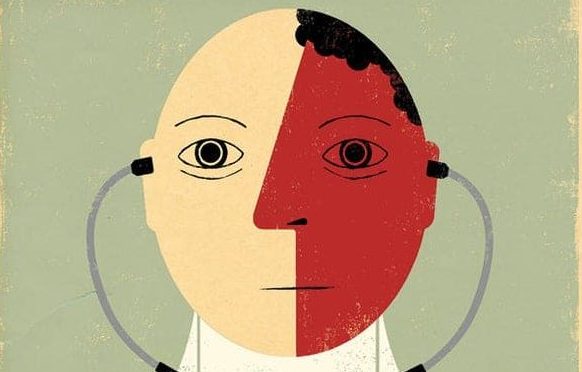Learn about obesity
I have excess weight. Am I obese?
Me ight gain and o besity are different concepts.
Me Obesityobesity) is considered by the World Health Organisation to be a disease affecting all ages and all social and economic strata. It is characterised by increased fat deposition on in the body and internal organs (visceral fat) and entails a risk of a number of complications developing.
Weight gain is a much more complex problem than a simple numerical reading on the scales, and is associated with physical, mental and social health and ultimately with quality of life.
What is the Body Mass Index?
Everyone has their own ideal body weight range depending on their height.
The Body Mass Index (BMI) is a rough indicator for assessing weight relative to height. It is easily calculated by dividing your weight (in kg) by the square of your height (in m). Body Mass Index (BMI)body mass index: BMI) is a rough indicator for assessing weight relative to height. It is easily calculated by dividing your weight (in kg) kgby the square of your height (in m). /m2).).
Let’s take an example:
Weight 82 kg kg Height 1.68 m /m2).
BMI = 82 ÷ (1.68)2 2≈29
Overweight:overweight): when BMI is between 25 and 29.9
Obesity:obesity): when the BMI reaches or exceeds 30
What causes obesity?
The main factor leading to obesity is increased calorie intake. In other words, the intake of calories from food is greater than the calories burnt through physical activity.
Other factors that can be associated with weight gain are the taking of certain medicines, certain endocrine disorders, as well as psychological and social factors. These factors need to be investigated and managed.
How can I learn how much fat my body has?
The most common methods used to calculate body fat are:
- BMI
- Waist and hip perimeter.
- Skin fold measurement (on the arm for example)
- Measurement using special electronic devices.
Magnetic and computerised axial tomography, hydrostatic balance and DEXA (dual energy x-ray absorptiometry) are also methods for determining body fat.
The Body Mass Index (BMI) is a rough indicator for assessing weight relative to height. It is easily calculated by dividing your weight (in kg) by the square of your height (in m). The Body Mass Index (BMI) is a useful clinical tool, but insufficient for a detailed understanding of the actual body composition in terms of muscle, fat, and water. For example, a well exercised weightlifting athlete may have a high body mass index due to developed muscle tissue and not due to excess fat.
This is why we use other methods to evaluate fat and body composition, tailoring it to the person we are examining.
Emotional food or hunger?
Do you consumefood to calm your anger or anxiety, or put differently, you may feel like eating but is this actual hunger?
Is food a gift to yourself after a difficult day? Is it a way for you to diffuse or mask negative emotions?
Compare and understand what food is for you:

Emotional food
Actual hunger
It relates to thoughts and emotional mood - it is in the “brain”.
It is felt in the stomach.
The desire comes as a strong impulse, like some sort of imperative.
Hunger comes on and gradually increases.
There may be an event that caused emotional stressstresson a professional or personal level.
It is not associated with mental stress.
It frequently fills a feeling of emptiness – “I eat because I am bored”
It does not fill an emotional void, but only an empty stomach!
Emotional hunger relates specifically to treats such as sweets, biscuits, cheese, pizzas, souvlaki, potato crisps , etc.
It is not associated with something specific - on the contrary there is a variety of food which are consumed. It can be satisfied with a salad, or other low-calorie food. It is not a hunger for sweets only, for example.
The compulsive impulse and urge to eat is not easily satisfied and leads to a high amount of food being consumed to the extent that it can cause discomfort.
True hunger is sated with a normal or lower amount of food and the meal leaves you feeling full, and there is no sense of discomfort.
After compulsive eating you feel regret, guilt and low self-esteem.
Food intake is not associated with regret and guilt.
Food may be consumed "on the go" and "gulped down" or while watching television and or while you are sitting at the computer.
Actual hunger increases gradually, and usually allows us to sit calmly at a table for our meal

Why lose weight?

Surgical treatment of obesity


